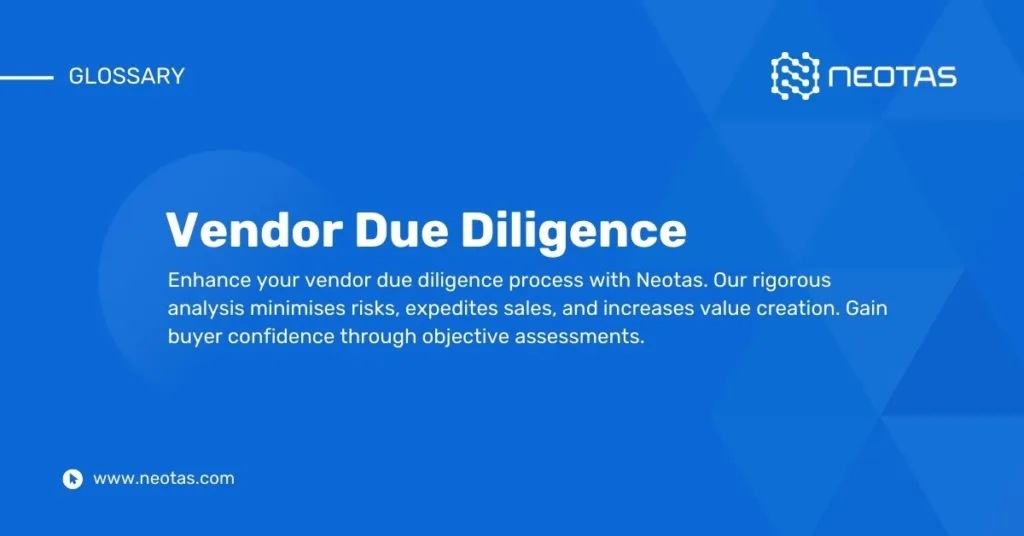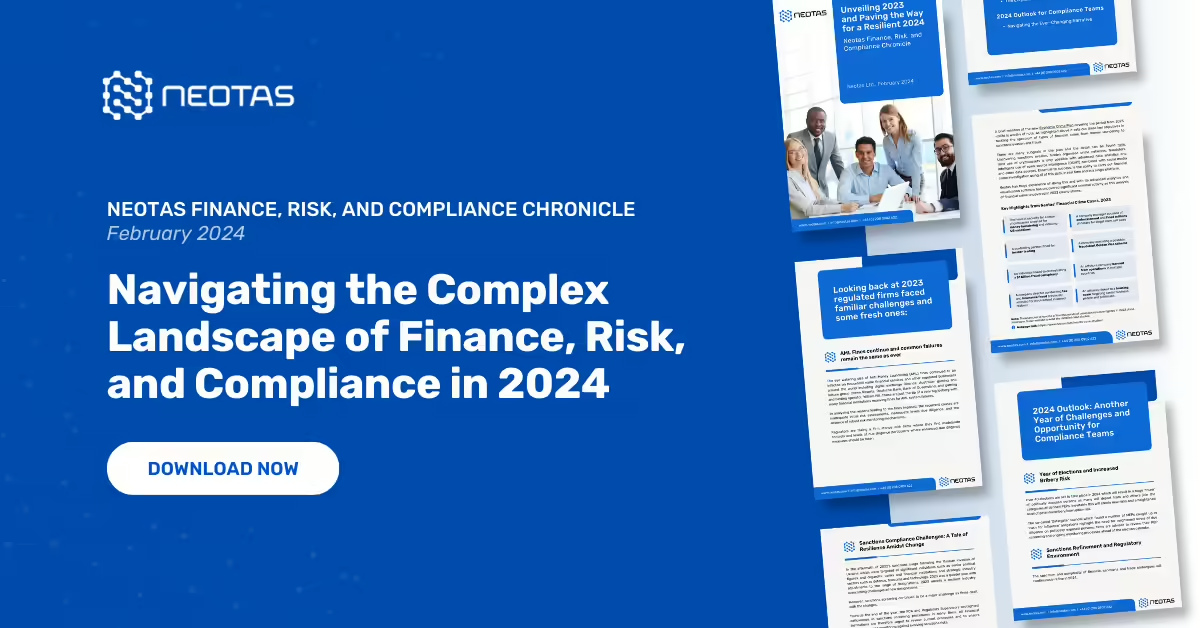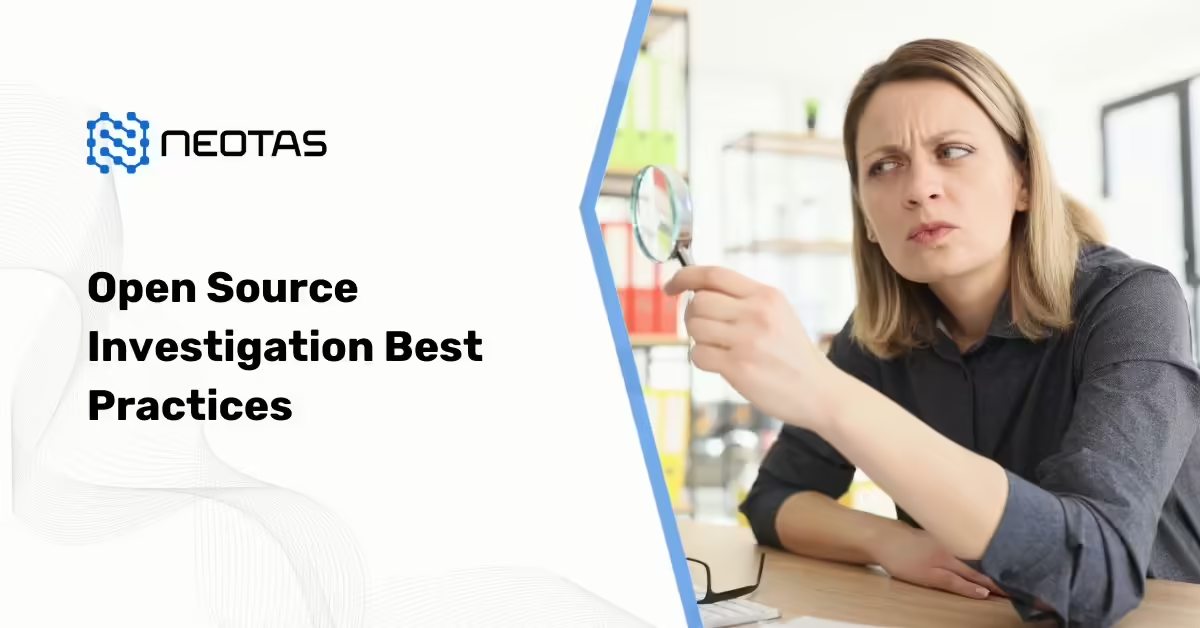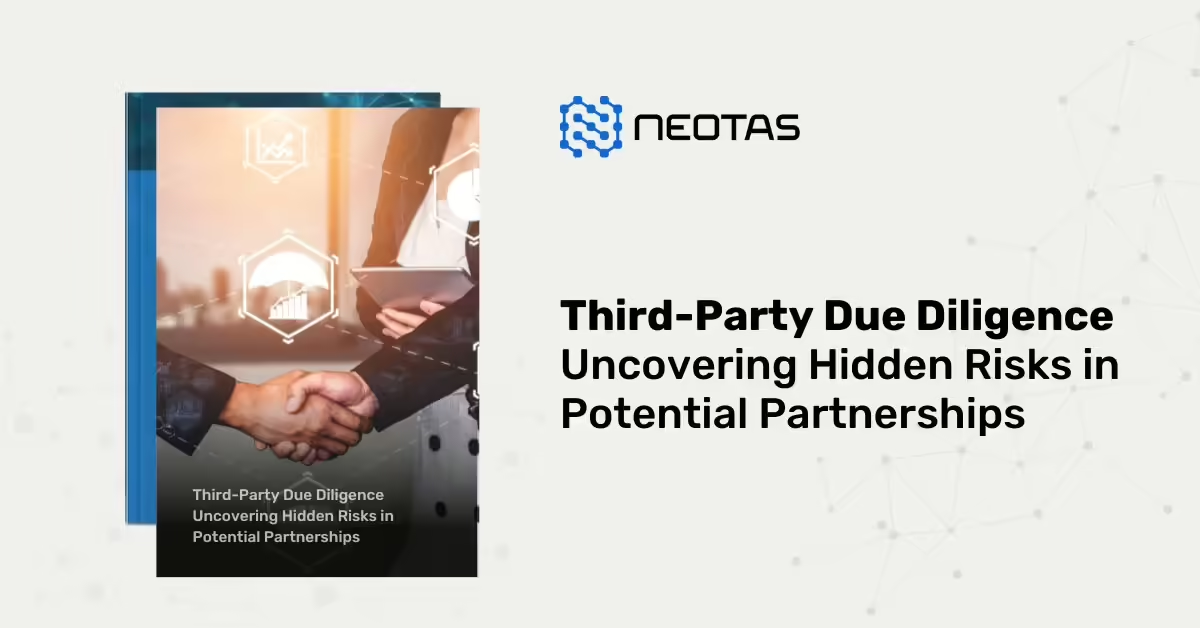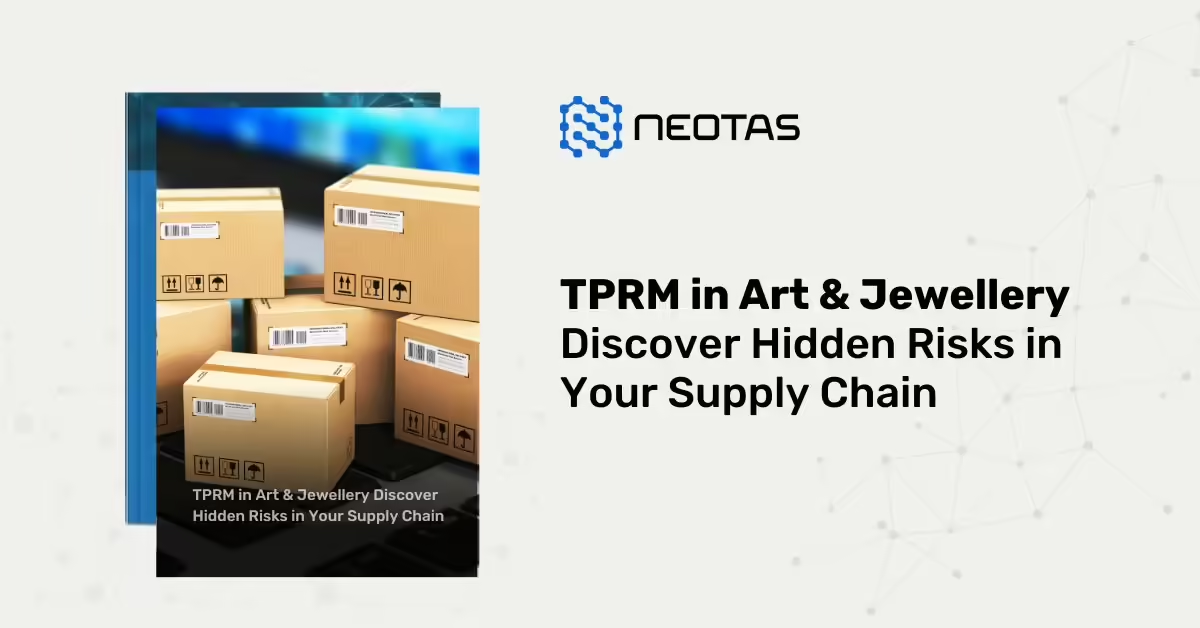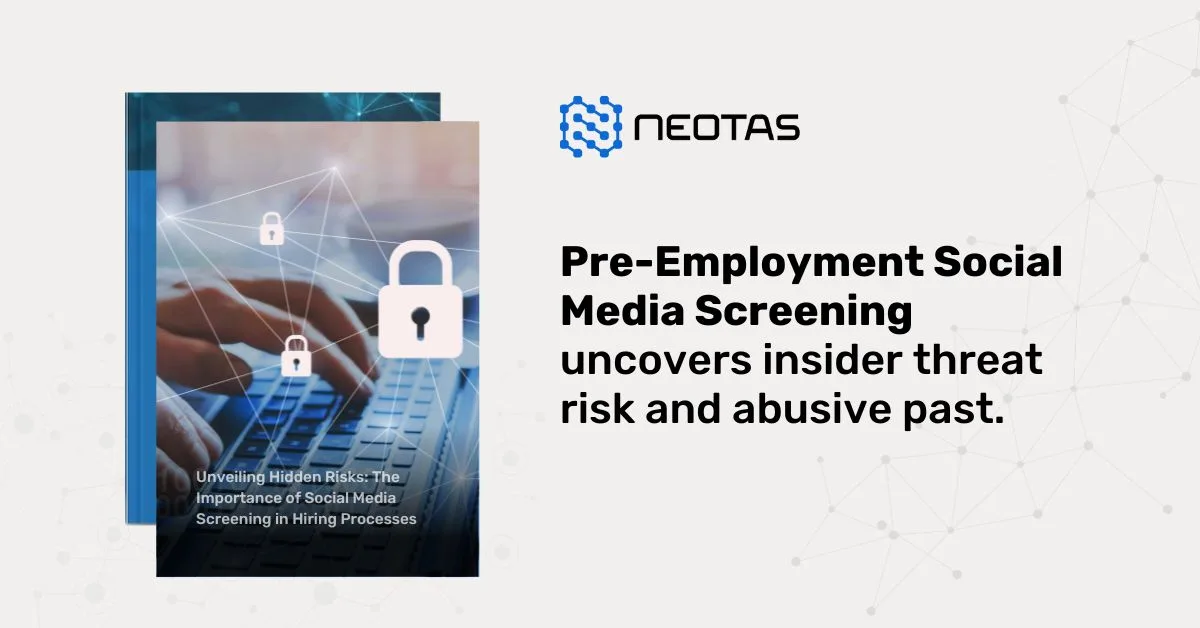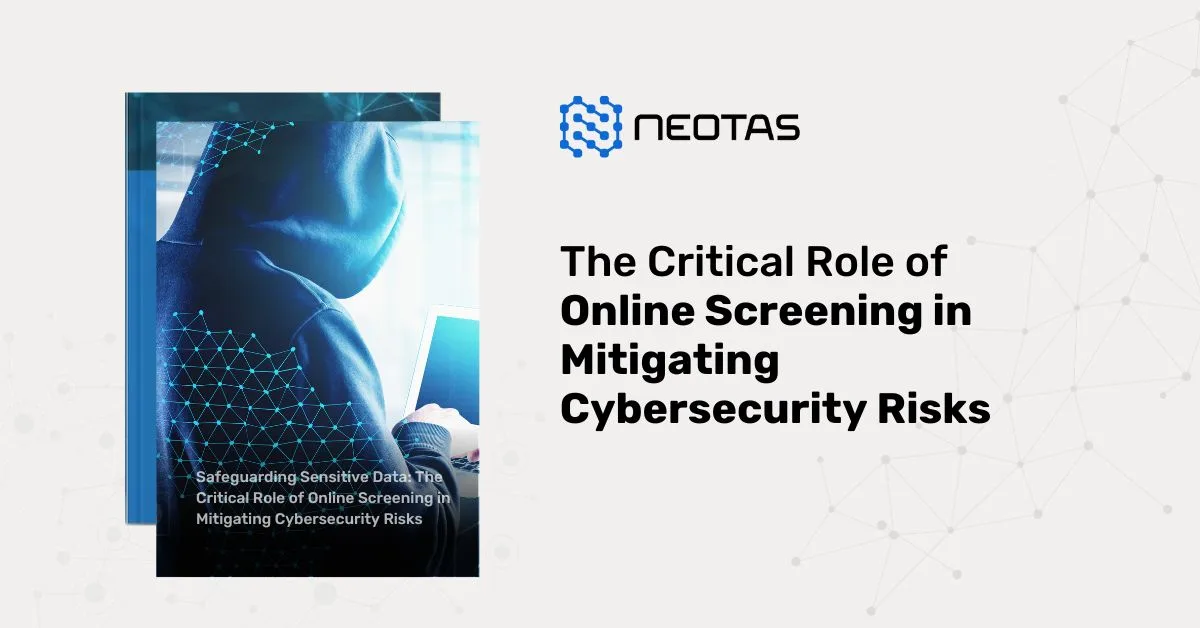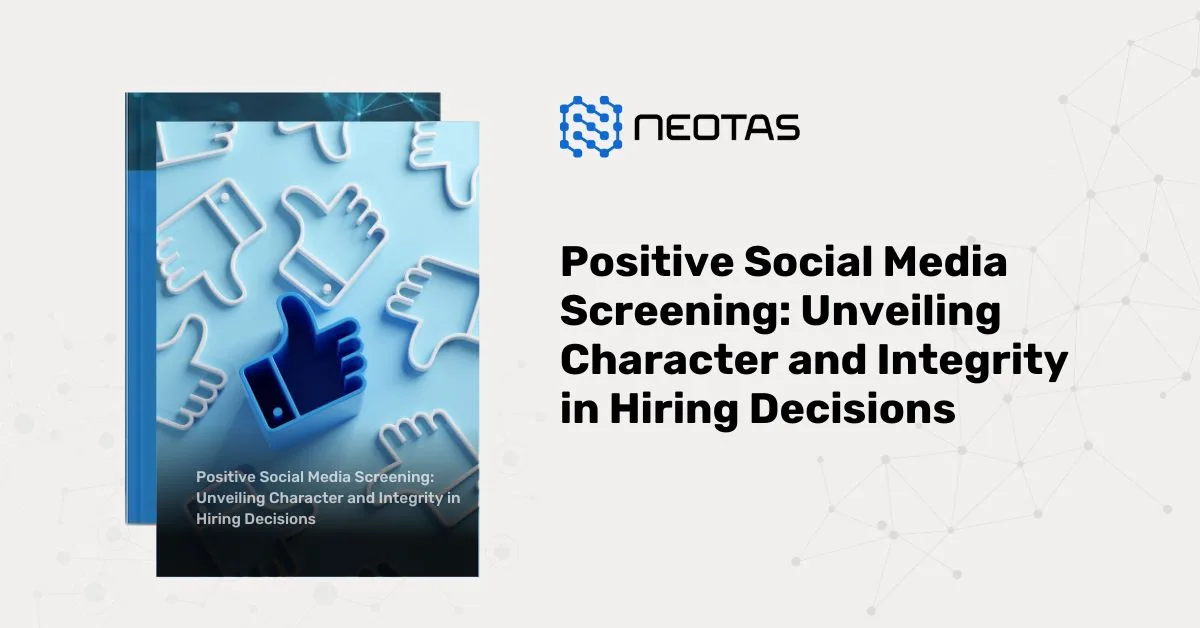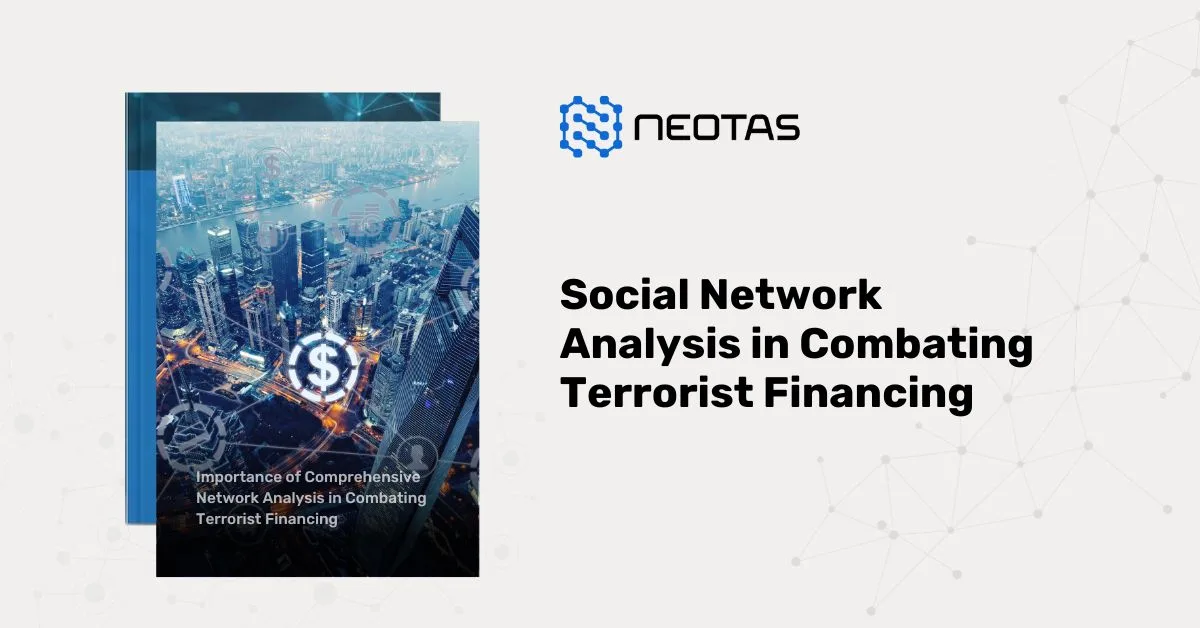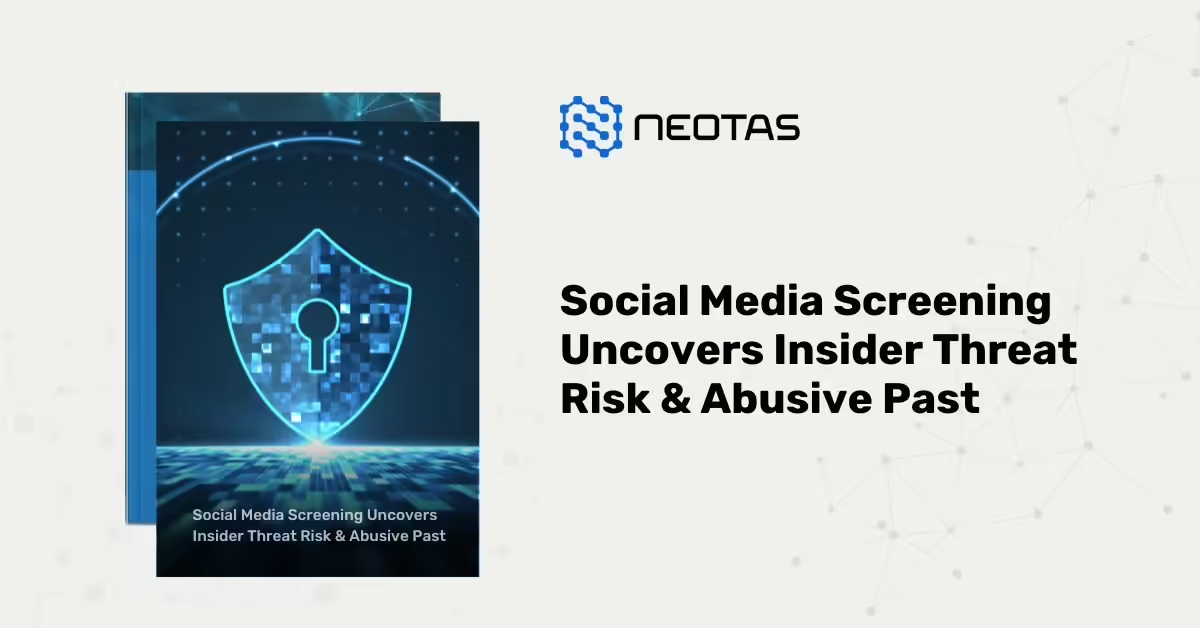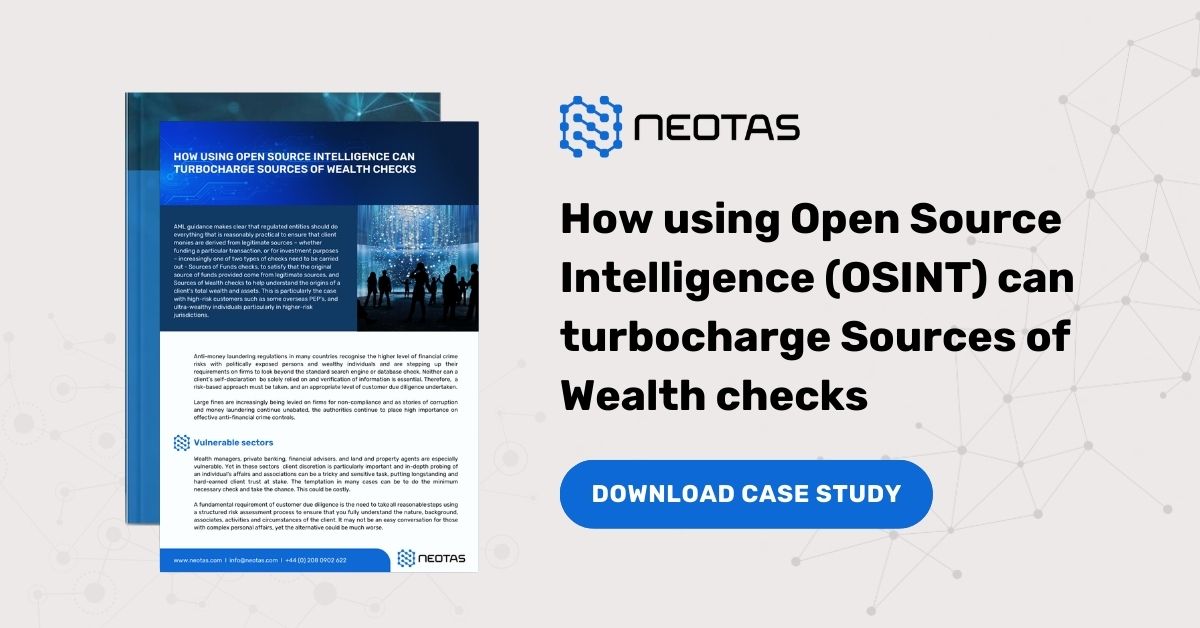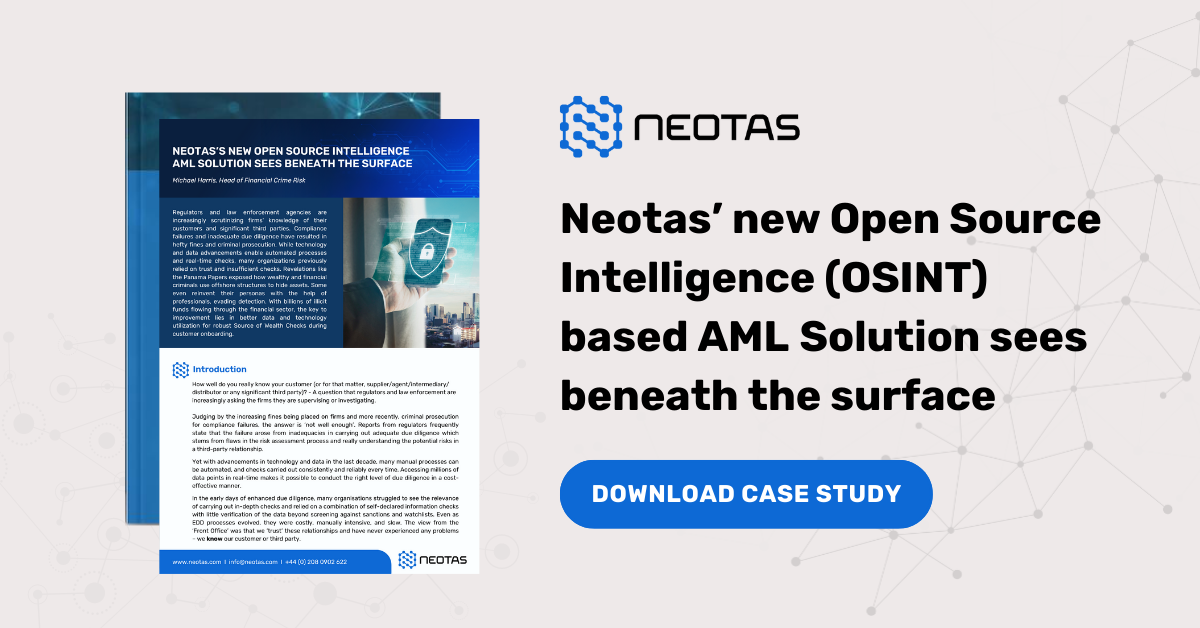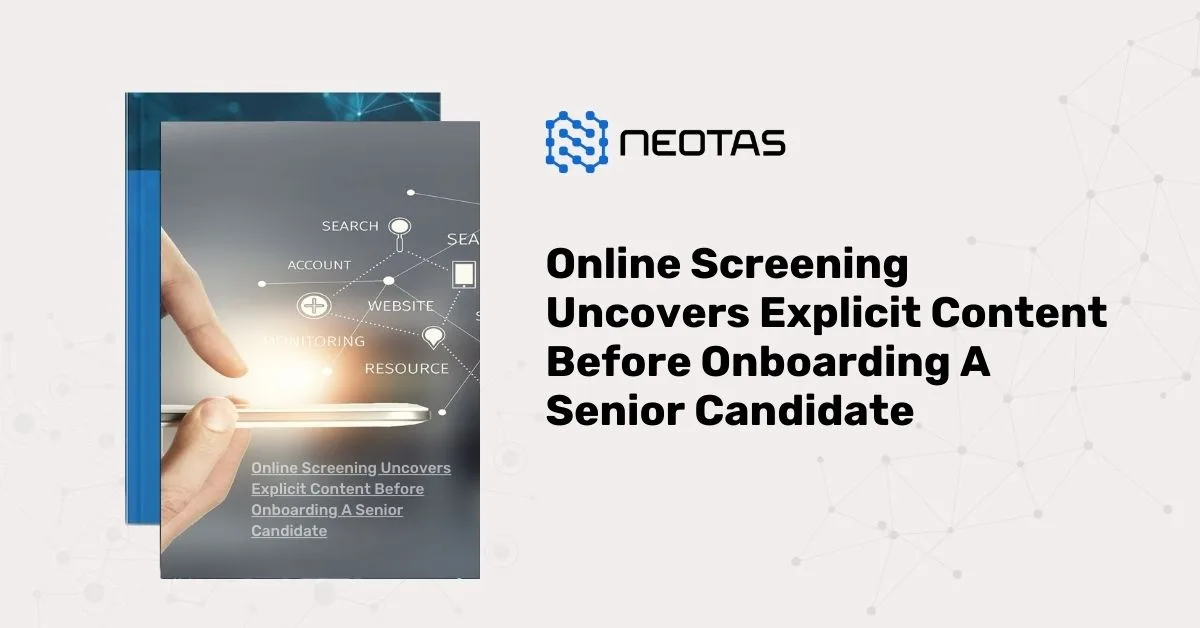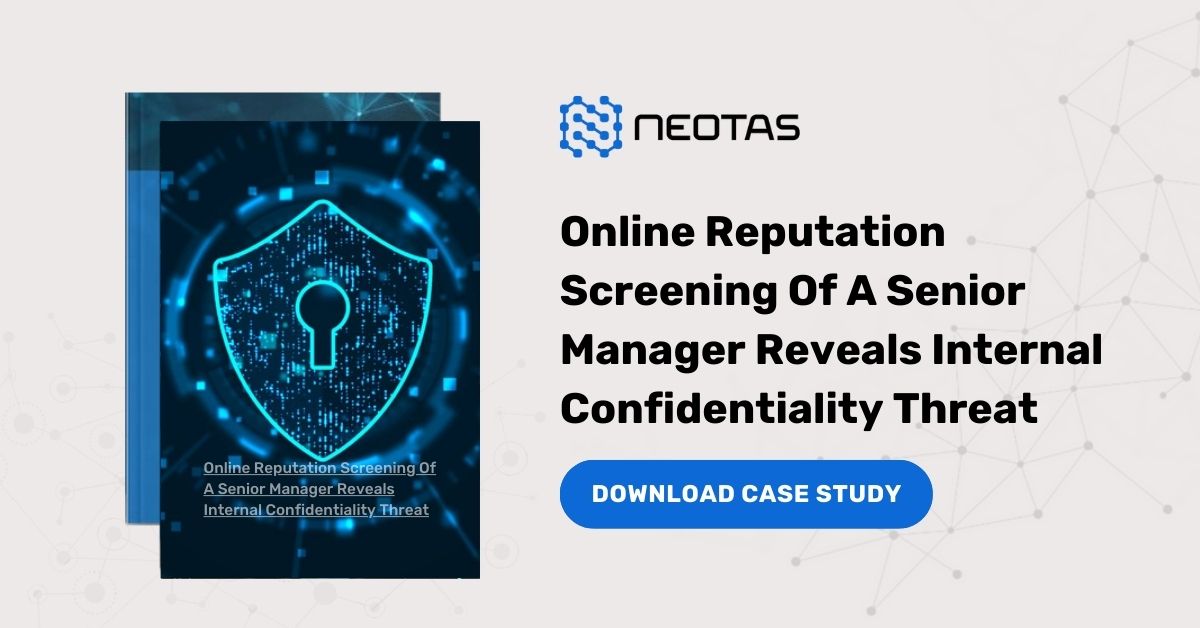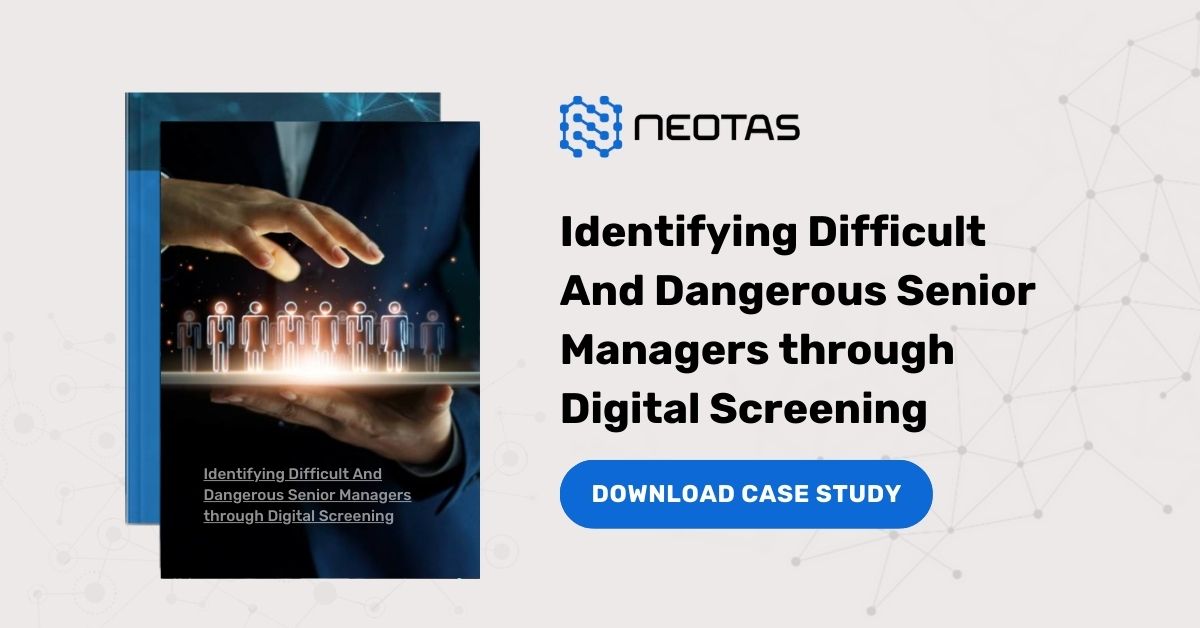Vendor Due Diligence Questionnaire
A comprehensive Vendor Due Diligence Questionnaire is a crucial tool in the vendor evaluation process. It serves as a structured framework for gathering relevant information about a potential vendor or service provider, enabling organizations to assess their suitability, identify potential risks, and make informed decisions regarding vendor selection and ongoing risk management.
The Vendor Due Diligence Questionnaire typically covers a wide range of areas, each designed to provide insights into the vendor’s capabilities, operations, and risk management practices. Here are some key sections and examples of the types of information that may be requested:
- Company Overview and Background:
- Company history, ownership structure, and organizational details
- Core business activities, products, and services offered
- Key markets and geographic presence
- Certifications, accreditations, and industry memberships
- Financial Information and Stability:
- Financial statements (income statements, balance sheets, cash flow statements)
- Credit ratings and financial risk assessments
- Bankruptcy or insolvency history
- Financial audits and regulatory compliance reports
- Operational Capabilities and Service Delivery:
- Description of service offerings and capabilities
- Resource allocation and capacity management processes
- Performance metrics and service level agreements
- Business continuity and disaster recovery plans
- Information Security and Data Protection:
- Information security policies, standards, and controls
- Data protection and privacy practices (e.g., GDPR compliance)
- Incident response and breach notification procedures
- Third-party audits and security certifications (e.g., ISO 27001)
- Risk Management and Governance:
- Risk management framework and processes
- Internal controls and compliance monitoring
- Policies and procedures for managing third-party risks
- Governance structure and oversight mechanisms
- Regulatory Compliance and Legal Considerations:
- Applicable laws, regulations, and industry standards
- Compliance management programs and controls
- Legal obligations and contractual terms
- Licensing and intellectual property rights
- Third-Party Relationships and Subcontracting:
- Reliance on third-party vendors or subcontractors
- Third-party risk management practices
- Due diligence processes for evaluating third-party providers
- Monitoring and oversight mechanisms for third-party relationships
- Business Continuity and Disaster Recovery:
- Business continuity and disaster recovery plans
- Data backup and recovery strategies
- Incident response and crisis management procedures
- Testing and validation of recovery plans
- Environmental, Social, and Governance (ESG) Practices:
- Environmental policies and sustainability initiatives
- Corporate social responsibility and ethical practices
- Diversity, equity, and inclusion policies
- Governance frameworks and board oversight
- References and Past Performance:
- Client references and testimonials
- Past performance and project success stories
- Dispute resolution and termination history
- Industry recognitions and awards
The Vendor Due Diligence Questionnaire should be tailored to the specific nature of the vendor’s services, the criticality of the engagement, and the organization’s unique requirements and risk profile. It may also incorporate additional sections or questions based on the industry, regulatory landscape, or specific concerns identified during the planning and scoping phase of the due diligence process.
The responses provided by the vendor to the Vendor Due Diligence Questionnaire serve as the foundation for further analysis, documentation review, site visits, and interviews. They offer insights into the vendor’s capabilities, processes, and risk management practices, enabling the due diligence team to identify potential areas of concern and develop appropriate risk mitigation strategies.
It is essential to approach the Vendor Due Diligence Questionnaire with a collaborative mindset, fostering open communication and transparency between the organization and the vendor. Clear instructions, definitions, and guidance should be provided to ensure that the vendor understands the context and importance of the requested information.
The Vendor Due Diligence Questionnaire is a living document that should be periodically reviewed and updated to reflect changes in the organization’s requirements, industry trends, and regulatory landscapes. Regular updates ensure that the questionnaire remains relevant and effective in identifying and assessing potential risks associated with vendor engagements.
By leveraging a comprehensive Vendor Due Diligence Questionnaire, organizations can enhance their vendor evaluation processes, mitigate potential risks, and foster long-term, sustainable business relationships with their vendors, while maintaining compliance with regulatory requirements and industry best practices.
Read more about Third-Party Risk, TPRM software, and TPRM processes.
Read the detailed guide on Vendor Due Diligence Checklist
How can Neotas Vendor Due Diligence help?
Enhance your vendor due diligence process with Neotas. Our rigorous analysis minimises risks, expedites sales, and increases value creation. Gain buyer confidence through objective assessments. Through our enhanced due diligence platform, businesses can efficiently track and evaluate vendors and contractors, ensuring adherence to security protocols in a cost-effective manner.
The Neotas platform automates the vendor onboarding process, streamlining the addition of new vendors with remarkable ease and speed.
Moreover, Neotas provides a customisable dashboard, enabling businesses to proactively identify and address emerging risks. By consolidating vital vendor information, Neotas facilitates the seamless integration of risk management into existing Customer Relationship Management (CRM) and Supply Chain Management (SCM) systems, ultimately helping businesses maximise profits while minimising risk exposure.
Request a Demo
If you’re curious about whether our Vendor Due Diligence solutions and services align with your organisation, don’t hesitate to schedule a call. We’re here to help you make informed decisions tailored to your needs.
Vendor Due Diligence Solutions:
- Enhanced Due Diligence
- Management Due Diligence
- Customer Due Diligence
- Simplified Due Diligence
- Third Party Risk Management
- Vendor Due Diligence
- Vendor Due Diligence (VDD) Guide
- Vendor Due Diligence Report
- Vendor Due Diligence Checklist
- Vendor Due Diligence Questionnaire
- Vendor Due Diligence Process
- Open Source Intelligence (OSINT)
- Introducing the Neotas Enhanced Due Diligence Platform
Vendor Due Diligence Case Studies:
- Third Party Risk Management (TPRM) Using OSINT
- Open-source Intelligence For Supply Chain – OSINT
- ESG Risk Management Framework with Neotas’ OSINT Integration
- Open Source Intelligence In AML Compliance | Case Study
- Identifying Difficult And Dangerous Senior Managers
- ESG Risk Investigation Uncovers Supply Chain Risks
- Financial Crime Compliance & Risk Management Trends
- Network Analysis Reveals International Links In Credit Risk Case
- Network Analysis and Due Diligence – Terrorist Financing
- Using OSINT For Sources Of Wealth Checks
- ESG Risks Uncovered In Investigation For Global Private …
- PEP Screening: Undisclosed Political Links Uncovered For European Organisation
- Risk-Based Approach (RBA) to AML & KYC risk management
- Anti-Money Laundering (AML)
- Supply Chain Risk Management
- Due Diligence Explained: Types, Checklist, Process, Reports
FAQs on Vendor Due Diligence questionnaire
What are the key sections typically included in a vendor due diligence questionnaire?
Common sections in a vendor due diligence questionnaire include company overview and background, financial information and stability, operational capabilities and service delivery, information security and data protection, risk management and governance, regulatory compliance and legal considerations, third-party relationships and subcontracting, business continuity and disaster recovery, environmental, social, and governance (ESG) practices, and references and past performance.
How is a vendor due diligence questionnaire customized?
A vendor due diligence questionnaire should be tailored to the specific nature of the vendor’s services, the criticality of the engagement, and the organization’s unique requirements and risk profile. Additional sections or questions may be incorporated based on the industry, regulatory landscape, or specific concerns identified during the planning and scoping phase of the due diligence process.
What is the significance of the financial information section in a vendor due diligence questionnaire?
The financial information section of a vendor due diligence questionnaire is crucial for assessing the vendor’s financial stability and solvency. It typically requests financial statements, credit ratings, bankruptcy or insolvency history, and regulatory compliance reports to evaluate the vendor’s ability to fulfill contractual obligations and mitigate financial risks.
How does a vendor due diligence questionnaire address information security and data protection concerns?
The information security and data protection section of a vendor due diligence questionnaire aims to evaluate the vendor’s policies, standards, and controls for safeguarding sensitive information and ensuring data privacy. It may request details on incident response procedures, third-party audits, and security certifications to assess the vendor’s ability to protect the organization’s data and comply with relevant regulations.
What is the role of the risk management and governance section in a vendor due diligence questionnaire?
The risk management and governance section of a vendor due diligence questionnaire focuses on understanding the vendor’s risk management framework, internal controls, compliance monitoring, and governance structure. This information helps organizations assess the vendor’s ability to identify, mitigate, and manage potential risks associated with the engagement.
How does a vendor due diligence questionnaire address third-party relationships and subcontracting?
The third-party relationships and subcontracting section of a vendor due diligence questionnaire aims to identify if the vendor relies on other third-party providers or subcontractors. It evaluates the vendor’s third-party risk management practices, due diligence processes, and monitoring mechanisms to ensure that the organization’s interests are protected throughout the supply chain.
What is the significance of the business continuity and disaster recovery section in a vendor due diligence questionnaire?
The business continuity and disaster recovery section of a vendor due diligence questionnaire assesses the vendor’s ability to maintain service continuity and recover from disruptive events. It may request information on disaster recovery plans, data backup strategies, incident response procedures, and testing and validation processes to ensure the vendor can effectively manage and mitigate operational risks.
How does a vendor due diligence questionnaire address environmental, social, and governance (ESG) practices?
The environmental, social, and governance (ESG) section of a vendor due diligence questionnaire evaluates the vendor’s commitment to sustainable and ethical business practices. It may request information on environmental policies, corporate social responsibility initiatives, diversity and inclusion policies, and governance frameworks to assess the vendor’s alignment with the organization’s values and stakeholder expectations.
What is the importance of the references and past performance section in a vendor due diligence questionnaire?
The references and past performance section of a vendor due diligence questionnaire provides insights into the vendor’s track record and reputation. It may request client references, testimonials, project success stories, dispute resolution history, and industry recognitions to evaluate the vendor’s reliability, quality of service, and ability to deliver on commitments.

